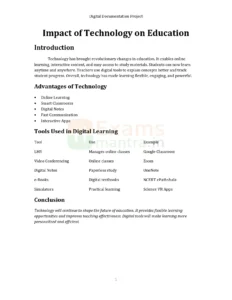Class 9 IT 402 and AI 417 Self-Management Skills I Notes
Unit 2 – Self-Management Skills 402
Self Management
Self management which is also termed as self control or self regulation. It is the ability to regulate one’s emotions, thoughts and behaviours effectively in different situations.
Some positive results of self-management.
The practice of self-management benefits you in the following different ways.
- Makes you more organised
- Instils discipline
- Helps in attaining goals
- Enhances self-confidence
- Commands respect from others
- Personal growth
- Better work-life balance
- Stress reduction
- Efficient decision making
- Leadership development
Why is self management important for students?
Self management allows students to follow the plans to complete assignment, study for tests and stay focused in class. It provides the options to learn the life and develop new professional skills to achieve the desired goals.
What are the positive results of self management?
You are the master of your own mind, so you should dictate how your emotions make you feel, not the other way around. The self management is very important as it provides the ability to realizing the talent and improving the self image. It also helps in setting the goals and also provides ability to achieve them.
What is the full form of SMART?
Specific, Measurable, Achievable, Realistic and Time-bound
Define the term SMART strategy.
SMART is an acronym for Specific, Measurable, Achievable, Realistic and Time-bound. Thus, adopting SMART strategy means you can clarify your ideas, focus your efforts, use your time and resources productively and increase your chances for achieving what you want in life.
- Specific: A well defined task helps you to focus your efforts.
- Measurable: Outcome should be considered before starting any task. Like, a goal without a measurable outcome is like a sports competition without a scoreboard.
- Achievable: Set targets that are realistic and can be achieved.
- Realistic: Prepare a realistic plan to achieve desired goal.
- Time-bound: A time-bound target informs you whether you are progressing at the right pace or not.
Define time management.
It refers to managing time effectively so that the right time is allocated to the right activity. Effective time management allows individuals to assign specific time slots to activities as per their importance.
How can you increase your self-confidence?
Self-confidence can be learned, practiced and mastered, just like any other skills. Once you master it, everything in your life will change for the better.
SWOT Analysis – SWOT stands for Strength, Weakness, Opportunity and Threats.
- Identify your core strength
- Identify your weaknesses
- Identify your core skills
- Threat – Explore more about your life (by searching on Internet, read articles)
Important Class 9 Self Management Skills 2 Marks Questions for Half Yearly or Annual Examinations
- Define self-management.
- Write any two positive results of self-management.
- Why is self-management important for students? (Write two points)
- What is the full form of SMART?
- Define the term SMART strategy.
- Explain “Specific” and “Measurable” in SMART strategy.
- Explain “Achievable” and “Realistic” in SMART strategy.
- What do you mean by “Time-bound” in SMART goals?
- Define time management.
- Mention two benefits of effective time management.
- How can you increase your self-confidence? (Any two ways)
- Expand SWOT.
- Write any two steps of SWOT analysis.
- Differentiate between strength and weakness in SWOT analysis (any one point each).
- State any two advantages of practicing self-discipline.









Post Comment